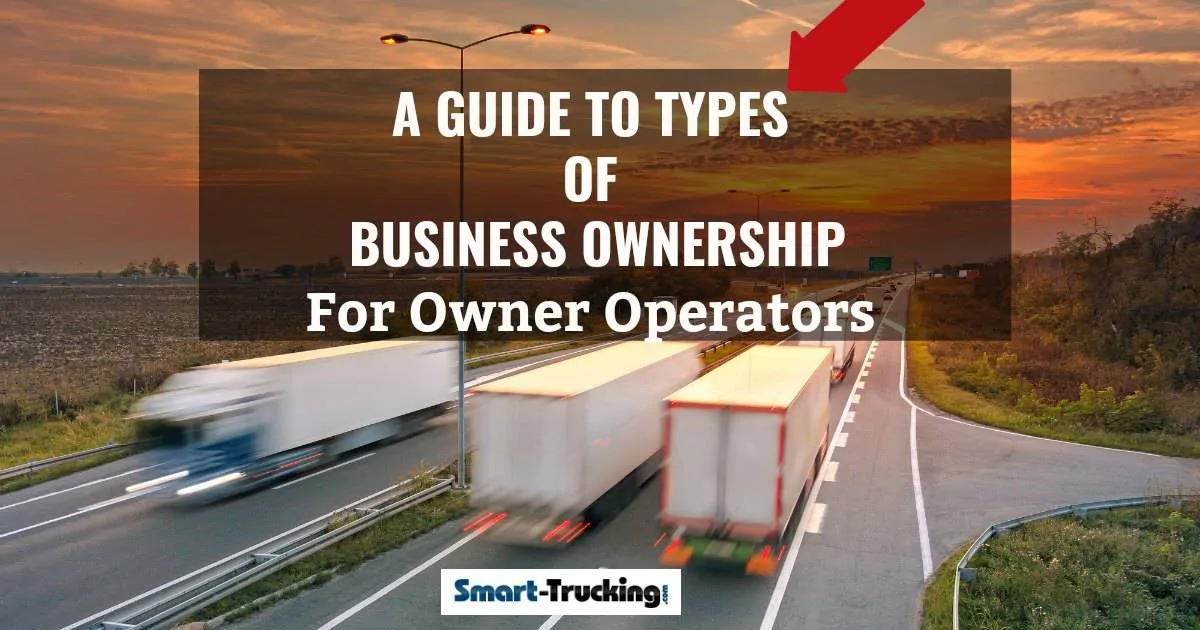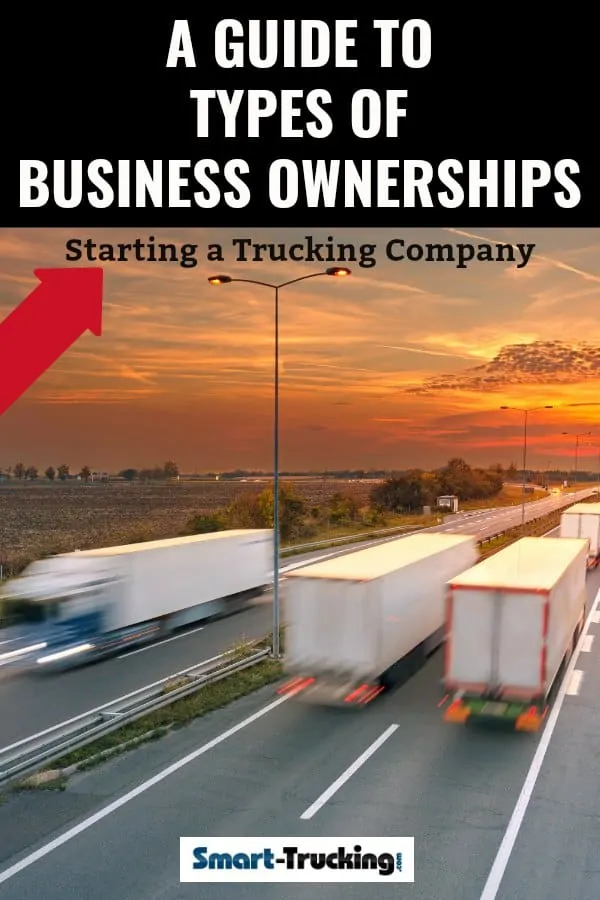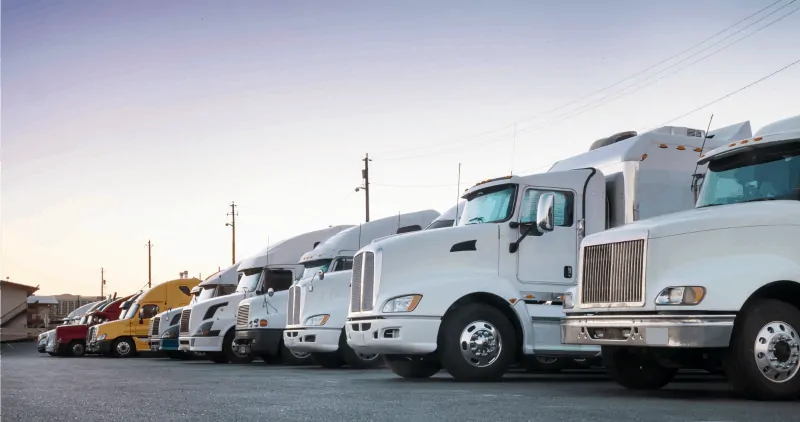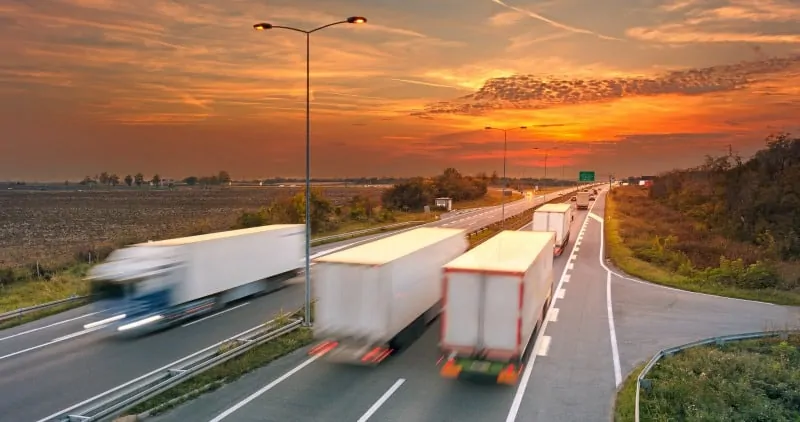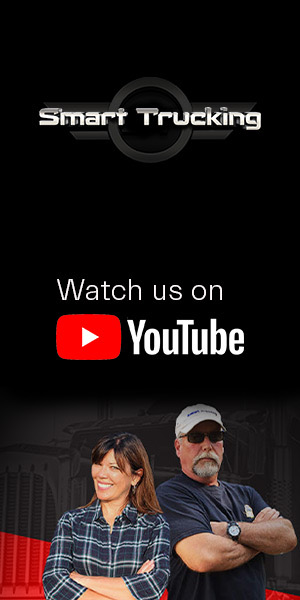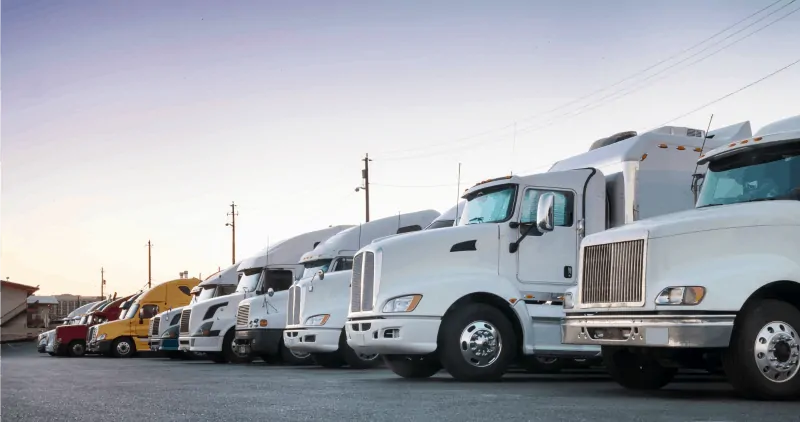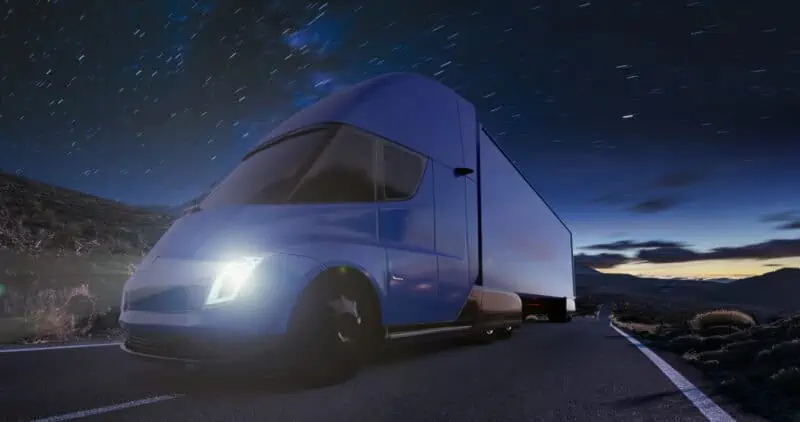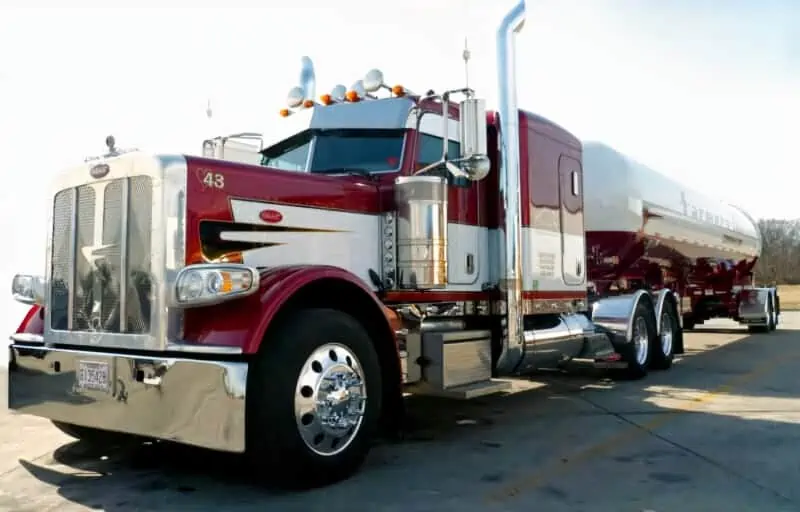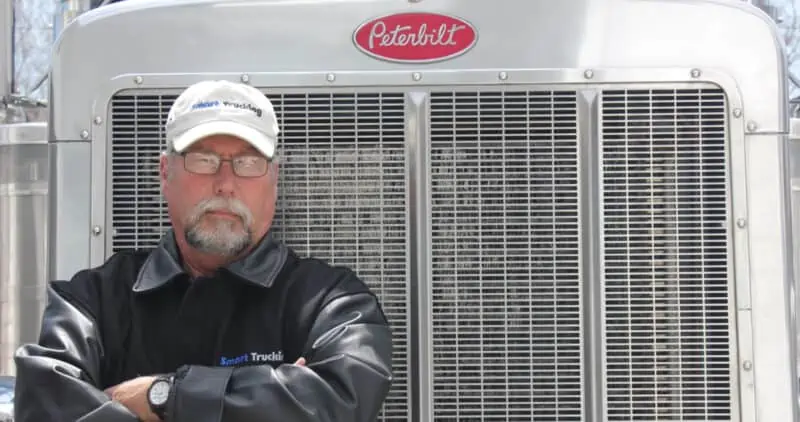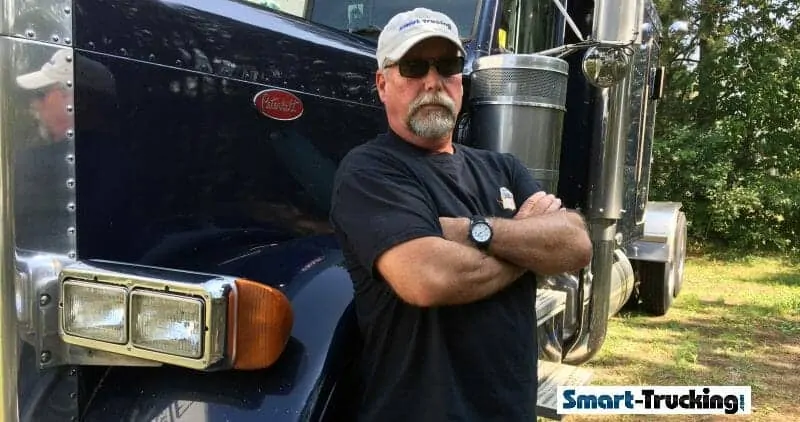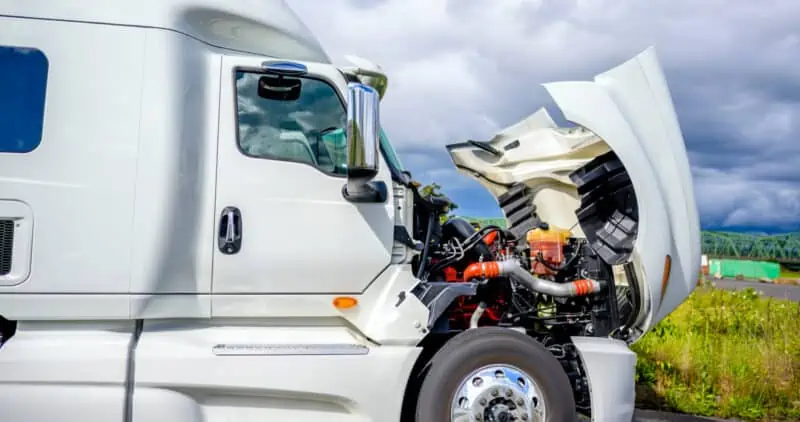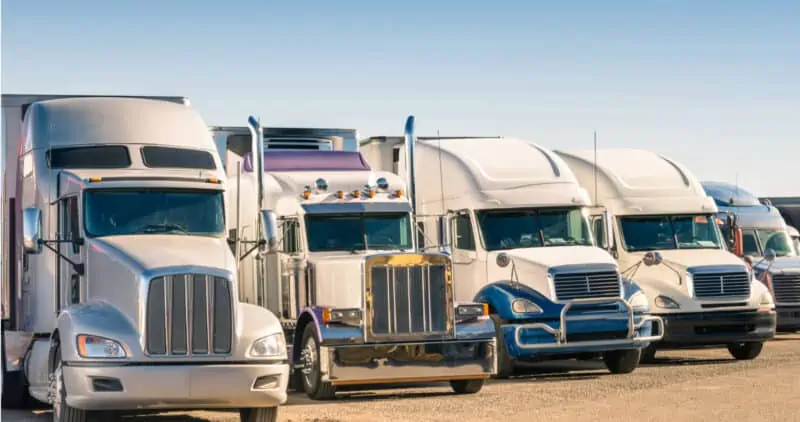Table of Contents
- Most Popular Types of Business Ownership Structures Available
- U.S. vs Canadian Business Ownership Structures
- Will an LLC be Right for My Trucking Company?
- Considering Types of Business Entities for Self-Driving Trucks
- The Most Important Question to Answer for Your Trucking Company
- More Related Articles
There are different types of business ownership models to consider, when starting your own trucking company.
With more than half a million trucking companies now in operation throughout the US, you might be considering a leap into the business yourself.
The Federal Motor Carrier Safety Administration (FMCSA) notes that as of 2017 there were 3,727,365 card-carrying Commercial Drivers License truckers.
That’s a big field with a lot of potential for growth, considering many carriers have fleets with fewer than seven trucks.
It doesn’t take a huge empire to make a solid impact, but it will require a realistic and informed type of business ownership that sets you up for success and limits your legal liability should you ever get sued.
Don’t forget, even owner operators with one truck should chose an appropriate type of business ownership. They too have legal liability which a company driver does not.
Most Popular Types of Business Ownership Structures Available
When you’re fired up and ready to launch your own trucking company, here are four different types of business ownership options most commonly available, each with their own tax implications and legal considerations:
- Sole Proprietorship
- Partnership
- Limited Liability Company (LLC)
- Corporation
Let’s dive into each one to determine what might be the best fit for selecting a strong and secure type of business entity.
Related >Sure Fire Owner Operator Tips + Advice For Profit And Success
Sole Proprietorships
The name of this type of business ownership makes it pretty clear. Proprietorship means the state of owning a business.
Sole means you are doing so alone. If you have the means and motivation to open a trucking business on your own, this could be a place to begin.
For income tax purposes, a sole proprietorship is the government’s default type of company if you have not taken steps to register in a particular state as one of the other types of business entities.
Independent Contractors vs. Employees in the Trucking Industry
Many truckers fall under the category of an independent contractor.
An independent contractor is an individual working for another person to provide a service, but is not an employee.
Consultants and experts often fall under this category, and solo truckers that are not hired on a fleet’s staff as employees often drive as independent contractors.
For tax purposes, at the end of the year an independent contractor would receive a 1099-MISC Form from the person or company for whom they have been driving and providing other trucking industry related services.
In contrast, employees would receive a W-2 Form from the company.
Unlike for employees, there are no taxes taken out of paychecks for independent contractors, so that is an extra responsibility for the contractor to pay both income taxes and self-employment taxes.
Most independent contractors also fall under the category of sole proprietors, meaning they are essentially running their own small business of one.
While it’s possible for an independent contractor to conduct business as a partnership, LLC or corporation, it’s not very common.
Is a Sole Proprietorship The Right Choice for a Trucking Company?
The independence and ease that comes with skipping corporate business taxes, keeping business costs low and simplifying record keeping make a sole proprietorship an appealing choice for truckers.
But when it comes to forming a fleet of trucks that you own and manage, the possibility of errors and accidents increases.
In a sole proprietorship, your liability is unlimited and connected in many cases to your personal assets. You and the company are essentially the same.
So that means if a trucker who you’ve hired does have the misfortune of getting into an accident, it’s likely legal action may be initiated against the company you own.
If the company is found to be negligent and required to pay money damages to injured parties, your personal protection is exposed — meaning your home and other personal assets could be at risk to pay off a settlement against your company.
For this important reason, sole proprietorships are typically not the best option when starting a trucking company.
There’s just too much personal risk at stake for common and unfortunate events, like truck accidents, that are not always in your control.
Related > Trucking Company Reviews And Resource Guide For Truck Drivers
Partnerships
A partnership is a business relationship and entity formed by two or more individuals who share ownership in the company.
In this type of business structure, multiple owners have invested in the business — very helpful for large assets like tractor-trailers — and they share the profits and losses (including lawsuit debts) of the business together, all depending on the type of partnership they have set in motion.
The two most common types of partners in these entities include:
- General Partners – They manage the partnership and hold responsibility (liability) for the debts of the partnership
- Limited Partners – They invest in the business, but do not manage the business.
Partners in the company must report the profits and losses on each of their personal tax returns that get filed with IRS Form 1065.
Will a Partnership Be a Good Fit for My Trucking Company?
The real value of partnerships typically comes from more investor involvement. Pooling your resources, money, talent and profits and losses can be a real jump start to a major endeavour like starting a trucking company.
However, partnerships have a few glaring setbacks.
Like an independent contractor and/or sole proprietor, a partnership does not separate you from your company. So when it comes to liability for unforeseen events like accidents, you are taking on the financial responsibility to pay for company debts, including lawsuits against the company.
And if those money damages cannot be recovered from the company assets, then the structure is set up so that they can collect from your personal assets, including homes in most states.
Although shared, that’s still a lot of risk for a handful of partners to take on.
Should the worst-case scenario come about, the personal lives they have built are not very well protected from loss.
Related > 7 Things Every New Owner Operator Should Know
Corporations (U.S.)
Traditional corporations are a real opportunity to separate the personal assets of the owner from the debts incurred by the business.
For tax purposes, corporations pay according to their business profits. Corporations also can take on an unlimited number of shareholders who, as the word implies, “share” the profits of the company.
By sharing the dividends, this often creates a healthy tax benefit for corporations. Corporations are also well established to receive funding from investors.
Keep in mind that corporations come with some fairly rigid and often costly requirements including:
- Mandatory annual meetings with accurate records of the minutes
- A well documented organizational structure of the company
- Thorough accounting requirements
- Detailed legal requirements
When it comes to the exact kind of corporation, beyond the traditional structure, the options grow into a handful of options including:
- C-Corporations – Profits are taxed separately from owners
- S-Corporations – Typically not subject to income taxes. Instead, profits and losses are passed through to the shareholders who report it on individual tax returns
- Professional Corporations – Professionals in a common field come together for this type of corporation, better thought of as a sub-category. A degree of liability often rests upon the owners for certain losses brought about by professional actions.
- Non-Profit Corporations – Typically tax-exempt on all funding. This is the route of setting up a business for education, or for philanthropy or even for the community.
Will a Corporation be Right for My Trucking Company?
Though more difficult and expensive to establish, corporations provide significant legal benefits.
In a corporation, the owners are the shareholders, and the shareholders of a corporation are separate from the business itself and cannot be directly sued for personal assets.
This provides significant protection for a trucking company where a lawsuit could trigger substantial losses.
For that reason, it could be a strong option for a trucking company, especially with a large fleet.
U.S. vs Canadian Business Ownership Structures
The US and Canadian types of business ownership structures are very similar.
However, in Canada, there is no option for LLC, C-Corporations or S-Corporations.
Limited Liability Company (LLC)
The LLC — meaning Limited Liability Company — brings together a combination of a corporation, sole proprietorship and partnership. The members of the company — the title given to owners — will file taxes similar to a partnership or sole proprietorship, listing the profits and losses of the business on their personal tax return. LLCs also have the option to tax themselves as a corporation.
Even an individual owner with no other partners can start an LLC. It’s very common for companies that started as sole proprietors to convert into an LLC. There are no annual meeting requirements for LLCs and they do not have shareholders.
Will an LLC be Right for My Trucking Company?
An LLC may provide the best initial route forward for a new trucking company.
Why? Well you certainly have a strong degree of flexibility on how you run your company, without the rigid structure of a corporation.
But perhaps the greatest benefit that comes along with that flexibility is robust personal protection against losses and lawsuits.
The trucking industry, like all major industries, comes with risk. With all that legislators, truckers and organizations can do to reduce the number of accidents each year, things still do go wrong. And when that happens, protection of your (personal) assets becomes essential.
In an LLC, owners / members don’t risk personal assets like a home to pay for a settlement after an accident or mishap at a loading dock.
The company may take a hit, might even have to declare bankruptcy, but the individual owners typically do not have to use their personal money or assets to pay for the biggest of damages in a settlement or verdict.
Considering Types of Business Entities for Self-Driving Trucks
There’s a final reality truckers should pine over while considering how to develop their own business.
A major shift for many current and new companies undoubtedly invites more self-driving trucks and commercial vehicles, a tech talking point Business Insider notes “will become the norm as early as the next decade.”
Of course some truck driving jobs will be phased out, but it also creates an opportunity to learn about emerging technologies, and the new liability laws that will come as a result.
Keep your eyes open for changes in the industry and how they might affect the best structure for your trucking company.
The Most Important Question to Answer for Your Trucking Company
You cannot always control the forces of nature, the actions of your contractors and employees, and the driving choices of other vehicles.
For this reason, the most important question you should ask before you choose a type of business is this:
If one of my drivers caused an accident with injuries or fatalities through an act of negligence (like texting and driving), and it generated a major lawsuit requiring a payout of more than the value of every piece of business property and every truck in the fleet I own, could they take my home and personal assets to pay off the required debts?
The answer will vary from state to state, but how you answer that question should guide you toward an answer and a structure of business that sets you up for personal success, no matter how future events unfold.
Please Note: The above content is not for legal purposes and is meant for informational purposes only. Always check with an accountant, attorney or other tax professional before making important business decisions.
Isaacs and Isaacs Law Firm
Isaacs and Isaacs has been serving as a personal injury law firm in Kentucky, Indiana and Ohio for more than 25 years. Started by attorney Darryl Isaacs and his late father Sheldon Isaacs, it remains dedicated to seeking justice and paving the way toward making our roads safer for all who share them.
Isaacs and Isaacs, Primary Office
1601 Business Center Ct
Louisville, KY 40299
Phone: 502-458-1000
